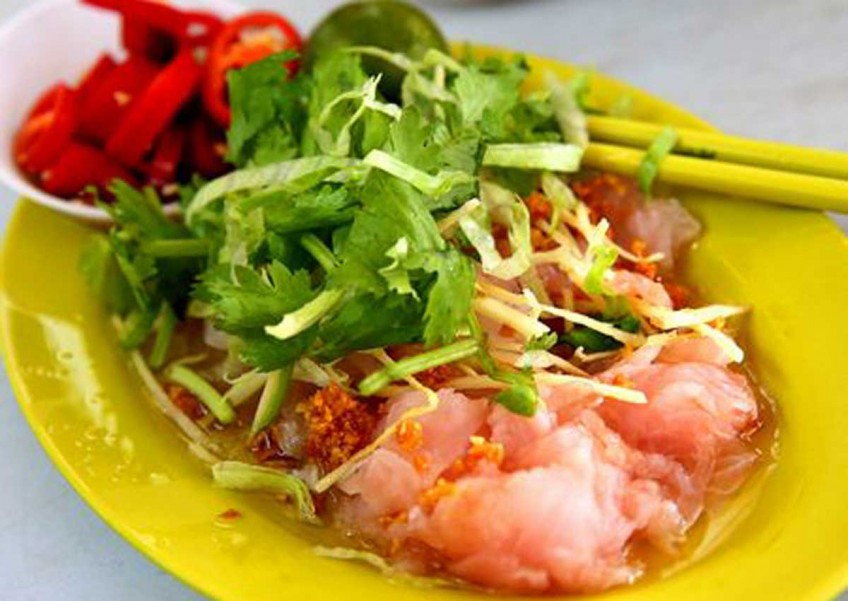No link between GBS infection and eating sashimi, says MOH

The Ministry of Health (MOH) has not found any links between the Group B Streptococcus (GBS) infection and the consumption of Japanese raw meat or fish dish sashimi.
In a Facebook post, it responded to messages circulating by SMS and WhatsApp from an unknown source that claimed a person had died recently from a bacterial infection after eating sashimi over the National Day weekend, and that a professor had been critically ill after consuming salmon sashimi two months ago.
The MOH said its investigation found only an association between the GBS infection and the consumption of "yusheng-style" raw fish sold at food stalls.
It had previously found traces of GBS in some raw fish samples, although it said more cases would have to be studied before a definite conclusion can be made.
In its post on Wednesday, the MOH highlighted that there has been a "significant downtrend" in the number of GBS cases since the middle of last month, when licensed foodshop and food stall holders were advised to stop selling raw fish dishes using Song fish, also known as Asian Bighead Carp, and Toman fish, also known as Snakehead fish.
A weekly average of three cases has been reported in the past three weeks, down from an average of 20 at the start of the year.
The WhatsApp messages warning of a bacterial outbreak from eating contaminated raw fish began circulating last month.
GBS is a common bacterium found in the gut and urinary tract of 15 to 30 per cent of adults, but it does not cause disease in healthy individuals. However, it may occasionally cause infections of the bloodstream, skin and soft tissue, joints, lungs and brain.
Those with chronic or multiple conditions are at higher risk of getting GBS infections.
MOH advised vulnerable groups, especially young children, pregnant women, elderly persons, or people with chronic illnesses such as diabetes, to continue to exercise caution by avoiding raw ready-to-eat food.
Madam Amy Quek, 57, a sales manager, said she received the latest message from her sister-in-law on Wednesday. "The messages seem to indicate that the rumours about such poisoning are true... so I've asked my family to lay off raw fish and meat for now."
Media researcher Michael Netzley said it is common for such messages to "spread like wildfire" because of their emotionally charged content and the fear that the rumours may be true.
"Even though there's no conclusive evidence (to link sashimi consumption to the infection), most people think - better safe than sorry, given that raw fish is such a common food item here," said Dr Netzley, the academic director of executive development at Singapore Management University.
ateng@sph.com.sg
Group B Streptococcus is a common bacterium found in the gut and urinary tract of 15 to 30 per cent of adults, but it does not cause disease in healthy individuals. However, it may occasionally cause infections of the bloodstream, skin and soft tissue, joints, lungs and brain.

This article was first published on Aug 28, 2015.
Get a copy of The Straits Times or go to straitstimes.com for more stories.